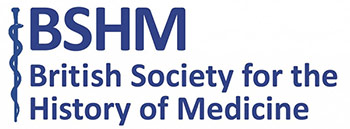Dr Mike Davidson reflects on his experience of completing a Masters of Letters (M.Litt.) degree via distance learning…

Saint Jerome in his study. Oil painting.. Credit: Wellcome Collection. Attribution 4.0 International (CC BY 4.0)
I recently completed a three-year distance learning M. Litt. in Scottish Heritage at the University of Aberdeen. Considering the current restrictions on conventional study and academic meetings by which many of us pursued our interest in the History of Medicine (HOM), I wondered if my experience offers a future option for HOM study.
I undertook the course to improve my academic skill-set, to write, and present my history of medicine research in a way that was appropriate for an academic audience. I could not find an appropriate postgraduate course within a 100-mile radius of my home willing to take on a student, part- or full-time, who did not have an undergraduate Humanities background. The University of Aberdeen ‘Masters in Scottish Heritage’ is a fully online, part-time course that anyone with a 2:1 honours degree or appropriate professional experience can apply to.

Teaching was delivered through MyAberdeen, an online Virtual Learning Environment. Screenshot courtesy of Dr Mike Davidson.
It provides the materials, tools and support needed for your studies. A potential weakness of distance learning course is library access, unless you can make local arrangements. I purchased some standard books for my library.
The recommended study time needed is 15 – 20 hours per week per term, more at assessment times. The total course fees were £8,700 paid in yearly allotments; other smaller regular payments are possible. The course comprised four taught modules of 30 credits, each over 12 weeks, two modules a year. There is flexibility in the time period to completion: students can prolong the course if personal circumstances demand.
The final year was a 20,000-word dissertation on a subject agreed with your supervisor. My dissertation title was “A Scottish doctor’s observations and experiences of the British West Indies; a comparative analysis of the pre-emancipation journals of Jonathan Troup (1764 – 1800).”
Each week of study had clear objectives, supporting material and notes relevant to the lecture or audio clips. Lectures were delivered as downloadable PowerPoints. Videos and audio clips are a valuable addition to the course, these ranged from two experts debating a course topic to original archive visual material. Primo provides valuable, easy access to many online resources, including e-books, journal articles and academic databases.
Virtual discussion boards with classmates and tutors replaced seminars, Tutors started debate by offering a series of questions or statements relating to the week’s work. The discussion boards have potential downsides compared with face-to-face sessions. As it is a written format some students produced almost mini referenced essays rather than spontaneous comments. This dampens debate and can feel very intimidating. If you take part late in the week, you may find the subject has been done to death and you have little to add. You can become a silent participant if more confident or over-prepared colleagues dominate the board.

An example of the online discussion board. Screenshot courtesy of Dr Mike Davidson.
An undoubted weakness of an online delivered course is the loss of direct face to face mentoring opportunities. I resolved this by occasional planned visits to Aberdeen, including attending two weekend retreats for postgraduate history students and History department staff. The retreats were excellent, giving me an opportunity for networking, constructive criticism, presenting your own work to an academic rather than clinical historian audience.
Having finished the degree, I have been reflecting on whether this approach could not be adapted to gain a qualification in the History of Medicine?
I feel an online tailored modular course would offer aspiring healthcare historians’ a way of gaining appropriate researching and writing skills. Accumulation of credits would offer a path towards a formal qualification for those who wish. It just needs an academic institution to run with the idea. I suspect there is a market out there.
Words by Dr Mike Davidson
